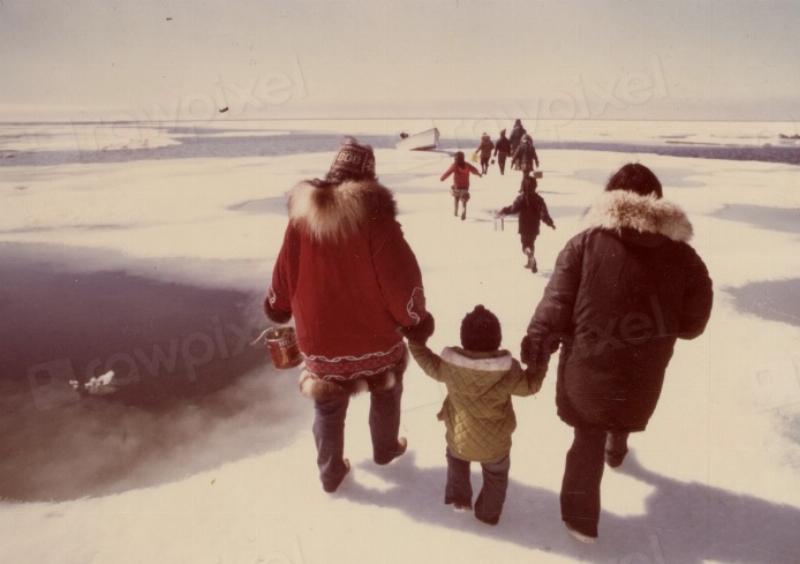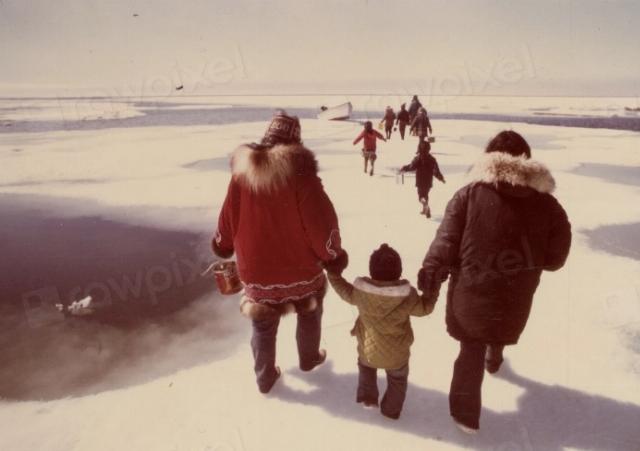


It felt like whiplash. First came the heartache on August 11, 2025 when Danish authorities forcibly separated an Inuit newborn, Aviaja-Luuna, from the embrace of her loving mother, Ivana Nikoline Brønlund, just one hour after what should have been the joyful celebration of her birth -- based on the racist and discredited methodology of a long-used parenting competence test now forbidden under Danish law.
Then, two weeks later, came feelings of hope that justice long denied was at finally hand, when Copenhagen finally apologized for its moral trespass against the Inuit of Greenland for its equally disturbing and long-running forced contraception scandal, known as the Spiral Case, as did Nuuk for its part in continuing such abhorrent practices after 1992.
But a closer look at this public mea culpa leaves a bittersweet aftertaste, caused in part by its underwhelming and half-hearted attempt to atone for the sins of its past.
The Spiral case is no secret, and has festered like an open wound for decades. As Danish PM Mette Frederiksen acknowledged, “We cannot change what has happened. But we can take responsibility. Therefore, on behalf of Denmark, I would like to say: Sorry.”
When ‘Sorry’ Isn’t Sufficient
But ‘Sorry’ seems to grossly understate the gravity of the offense, which demands a deeper act of contrition. Offenses of this magnitude need much more than a “sorry.”
In Frederiksen’s words: “I apologise to the girls and women who have been subjected to systemic discrimination. Because they are Greenlanders. For experiencing both physical and psychological harm. For being let down.” But this was not just discrimination. This was a state-led campaign to suppress Greenland’s birthrate -- an assault on the very future of a people. Sorry doesn't even come close.
Greenland PM Jens-Frederik Nielsen’s also apologized: “for the harm and abuse that may have been inflicted on several women after we took over responsibility for our healthcare system” are likewise insufficient, particularly his evasive may have been. Naaja H. Nathanielsen, Greenland’s minister for justice and gender equality, further muddied the message of atonement: “An apology is only fitting and I believe it was unavoidable in order to move forward on a path of healing. So I am very pleased by the apology but I also couldn’t see any way around it.” Only fitting. Unavoidable. Move forward on a path of healing. Couldn’t see any way around it.
But Greenland’s rep to the Danish parliament, IA party member Aaja Chemnitz, saw joy in this moment for its many victims, a moment so long in coming: “An apology is important for a renewed relation between Greenland and Denmark,” she said. “What a joy.”
Dark Chapters Come to Light
Others remain disappointed. As Greenland’s PM Nielsen told the BBC: “For too long, the victims... have been silenced to death. It’s sad that an apology only comes now -- it’s too late and too bad." But as Danish PM Frederiksen cautions, “We must become more knowledgeable about our common past” and about “other dark chapters that deal with systemic discrimination against Greenlanders.” These dark chapters include forced separations and intentional suppression of Greenland’s birth rate. Widespread pain, suffering and in many cases, irreversible sterility, and a nearly universal lack of informed consent.
Greenland’s former PM, Múte B. Egede, rightly called the Spiral Case a genocide. Article II of the 1948 Convention on the Prevention and Punishment of the Crime of Genocide defines genocide as “any of the following acts committed with intent to destroy, in whole or in part, a national, ethnical, racial or religious group, as such: (a) Killing members of the group; (b) Causing serious bodily or mental harm to members of the group; (c) Deliberately inflicting on the group conditions of life calculated to bring about its physical destruction in whole or in part; (d) Imposing measures intended to prevent births within the group; [and] (e) Forcibly transferring children of the group to another group.” Three of these describe Denmark’s mistreatment of Greenlanders -- namely sections b, d and e.
At the very least, ‘Sorry’ and other half-hearted platitudes and equivocations must mark the beginning, and not the end, of the process of atonement. But more is needed -- much, much more. Indeed, Copenhagen’s underwhelming apology is a poignant reminder that the moral argument for America's expansion to Greenland remains as salient as ever, and not just the strategic argument.

Image: RawPixel.com
